|

If this website is the best of my reporting,
then The Short List is the best of the best — a
definitive collection
of must-reads. If you're not
sure where to turn on this site, pluck an article from here and
give it a look.
 Don't forget to check out my Huffington Post Q&A series, which includes interviews with Dr. Drew, Don't forget to check out my Huffington Post Q&A series, which includes interviews with Dr. Drew,
Adam Carolla, "Simpsons" star Harry Shearer, Oscar-winning screenwriter Dustin Lance Black and more.
 You can also watch videos of my reporting, including my "Nightline" collaboration with ABC News' Bob Woodruff You can also watch videos of my reporting, including my "Nightline" collaboration with ABC News' Bob Woodruff
and a stunning clip from my recent Congressional testimony, now available in the Media Gallery.
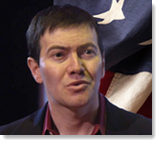 |
|
How to Uncover a Military Conspiracy
Soon after I began reporting on the military, I uncovered something quite disturbing: that thousands of our wounded soldiers are being discharged from the military not for their injuries but for "personality disorder." By discharging them with this unusual condition, the military can deny wounded soldiers a wide range of disability benefits, saving the military billions of dollars.
How did I uncover this scandal — and what can you do to help stop these fraudulent discharges?
In November, I addressed these questions in a TED talk at TEDxVanderbiltUniversity.  |
| |
 |
| |
 |
|
Winning the Language War,
Defeating 'Military Sexual Trauma'
The statistics are repulsive: Since 2006, more than 95,000 soldiers have been sexually assaulted while serving in the military. Approximately 25 percent of those victims didn't report being raped because the person to report to was the rapist.
Today's soldiers are fighting to survive in a military that hides its sins behind crafty, euphemistic acronyms. Just as shell shock morphed into "PTSD," Pentagon officials are reframing being raped as "experiencing MST," or Military Sexual Trauma. This op-ed is a clarion call to military families and concerned citizens to do something simple: support our soldiers by defeating that euphemism.  |
| |
 |
| |
 |
|
Disposable Soldiers
Part 3 in my series on Personality Disorder discharges follows the remarkable story of Sgt. Chuck Luther, who served in Iraq and won 22 honors before being wounded by mortar fire. The explosion left Luther with severe vision and hearing loss.
Army doctors told Luther his blindness and deafness were caused by a personality disorder. The sergeant was then tortured by Army officials: confined to a closet for over a month, under enforced sleep deprivation, until he agreed to sign fraudulent documents saying he suffered from a pre-existing personality disorder, thereby forfeiting all disability and medical benefits.
Luther's ordeal sparked outrage from Washington officials and the public and led to a large-scale effort, driven by readers, to halt PD discharges.  |
| |
 |
| |
 |
|
Through the Cracks
Nine-year-old Joi Little and her mother, Selena, died in February 1988, victims of a brutal double murder. For 21 years the case has gone unsolved, leaving the family wondering who and why.
A few weeks ago the NYPD's Cold Case unit announced a breakthrough in the case: the arrest of drug addict and drifter Robert Fleming.
The news was supposed to bring relief to the family. Instead, it has rekindled their pain — pain exacerbated by the fact that Fleming is steadfastly proclaiming his innocence.  |
| |
 |
| |
 |
|
What Happened to Sgt. Jimenez
Sgt. Juan Jimenez returned from Iraq with two Purple Hearts and a host of medical problems. Jimenez had been struck by two roadside bombs. The brain damage from those blows left him with seizures and severe headaches.
But when the sergeant approached the V.A. for disability benefits, his claim was rejected. Stunned and angry, Jimenez decided to fight back. He joined with other wounded veterans and sued the government.
The landmark case forced top Washington officials onto the witness stand to defend the V.A.'s treatment of ill and injured soldiers.  |
| |
 |
| |
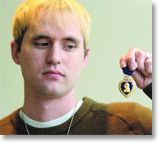 |
|
Thanks for Nothing
This profile of Specialist Jon Town set off a firestorm when it was published April 2007.
While serving in Ramadi, Iraq, Town was knocked unconscious by a 107-milimeter rocket. Though the blast left him with significant hearing loss, he was denied disability benefits after the Army claimed his symptoms came from a pre-existing personality disorder.
The article spurred 31 senators to call for an investigation and led to Congressional hearings in July 2007.  |
| |
 |
| |
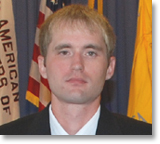 |
|
Taking His Case to Washington
In Part II of my personality disorder series, Specialist Jon Town heads to Washington, where he tells a Congressional committee how he won the Purple Heart and was then denied disability and medical benefits.
We hear from Senator Kit Bond, Congressman Bob Filner, rock icon Dave Matthews and others who have reached out to the wounded soldier.
The article also includes interviews with Army doctors who say wounded soldiers are routinely misdiagnosed.  |
| |
 |
| |
 |
|
The Talking Treatment
This article is a first-person look at my struggles with epilepsy — and the groundbreaking medical research that helped me get well.
This research and the treatment techniques derived from it, developed by psychologist Donna Andrews and Harvard-trained neurologist Joel Reiter, have led to critical discoveries about the nature of epilepsy which have yet to reach the public.
The product of several years of research and reporting in my own right, this article served as my master's thesis for the Columbia School of Journalism.  |
| |
 |
| |
 |
|
Miracle
or Science?
In
the weird world of Utah, the line between miracle and science
can indeed be a thin one. Certainly it was natural to ask
that question after meeting Brooke and Bree Hansen, two identical
twins as far as their friends and neighbors knew.
Only,
as it turns out, Brooke and Bree are of no genetic relation
whatsoever. What are the chances, then, that the two girls
would look identical?
"We're
talking about one out of all the grains of sand on all the
beaches in the world," said Professor Terry Schwaner, an expert
in population genetics.  |
| |
 |
| |
 |
|
Removing
Blasphemy from the Sales Pitch
It
was fascinating to learn the role Utah plays in national advertising,
as a kind of moral bottom line that major corporations would
monitor and refuse to cross.
This
article tells the story of two companies that did cross that
line — one by accident, the other on purpose — and the disastrous
consequences both faced as a result.  |
| |
 |
| |
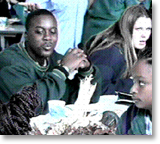 |
|
Helping
Them Stand
Olympic
High is a run-down continuation school just east of San Francisco,
and it was heart-wrenching to watch the kids try to make it
amidst the poverty and drug addiction. Stand, a respected
non-profit organization, had been reaching out to Olympic's
students, until they were forced to curtail their outreach
program due to budget cuts.
This
article follows one of Stand's last missions at Olympic High
and looks at the difference they were making in the lives
of the students.  |
| |
 |
| |
 |
|
Art
of the Repulsive
There's
something both horrifying and human about John Slepian's fleshy
blobs. When I met him, Slepian was fresh off an obscenity
controversy at the San Jose Institute of Contemporary Art
and on the verge of artistic celebrity in New York, facts
which made him ripe for a profile.
Presented
here: a look at the artist and some of his best work.
 |
| |
 |
| |
 |
|
Alien
at the Office
If
ever anyone explored the terrain between genius and banality,
it was Lars Tunbjörk. Tunbjörk's photos
take a while to "get," but look at these pics of empty office
cubicles long enough, and there is something there.
His
photos had won several prizes and captured the attention of
Soloarte, a prominent London-based art magazine, when the
publication asked me to produce this profile of Tunbjörk
for its October 2004 issue.  |
| |
 |
| |
 |
|
Don
or Don Quixote?
Of
all the characters I've put on paper, Lou Marracci is perhaps
my favorite. By the time we met, he was already well-known
at the Contra Costa Times (and to the San Francisco Bay Area
at large) for his passionate, rambling letters to the editor.
When
I suggested to my editor that I cover Marracci's latest crusade
— to bring bocce ball to Lafayette, Calif. - she broke out
in a warm smile. "Sure," she said. "Go ahead."
 |
| |
 |
| |
 |
|
Defense
Begins in Trial of
Landlord
Accused of Murder
It
was a gruesome case: a little girl burned to death in a Brooklyn
apartment building that had no fire escapes and no functioning
sprinkler system. Soon after, the landlord, Antonio
Casanova, was charged with intentionally setting the blaze.
This
is coverage from Casanova's murder trial.  |
| |
 |
| |
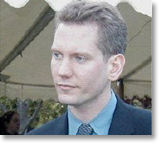 |
|
New
York Governor's Race
Come
along on the campaign trail with New York gubernatorial candidate
Scott Jeffrey. The Libertarian leader and I hit the
streets of Manhattan.
I
watched as Jeffrey, a kind but inept figure, bumbled his way
towards an electoral conclusion that seemed all but preordained.  |
| |
 |
| |
 |
|
Las Lomas Grad Makes His Mark
Awards are nice, but the greatest recognition always comes from home. In 2008, after my military reporting began making waves in Washington, I won the prestigious George Polk Award and was named a finalist for Harvard's Goldsmith Prize for Investigative Reporting.
Soon after reporter Theresa Harrington
of Walnut Creek, California's Contra Costa Times wrote this piece about my work, essentially a "Local Boy Makes Good" article. Having grown up in Walnut Creek, attended Las Lomas High School and reported for the Times following graduate school, it was an especially meaningful tribute.  |
| |
 |
| |
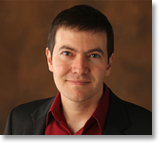 |
|
A Journalist Uncovering Stories of Injustice
Seven and a half years after reporter Theresa Harrington wrote a beautiful profile of me in my hometown newspaper, the Contra Costa Times, I was contacted by a second reporter, Lauren Tuiskula, a current student at my alma mater, Amherst College.
Published shortly after I won the George Polk Award, Harrington's piece was essentially a "Local Boy Makes Good" story. With my TEDx talk coming up in a few weeks, Tuiskula wanted to write a similar piece for the Amherst student newspaper, essentially an "Amherst Grad Makes Good" story. Tuiskula and I had quite a wide-ranging interview. She also spoke with Professor Ilan Stavans, one of my mentors at Amherst.
The result was less of a profile and more of an epic, a truly thoughtful tribute tracing several decades of my reporting.  |

|